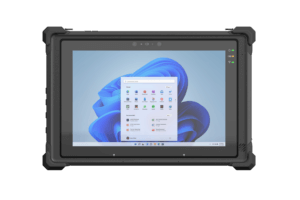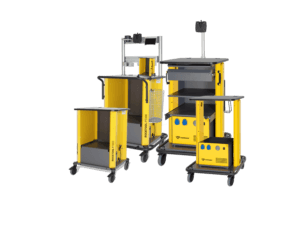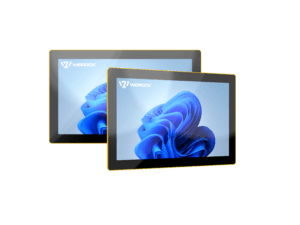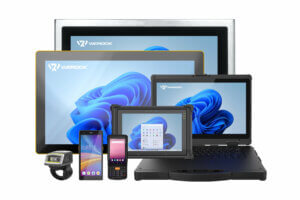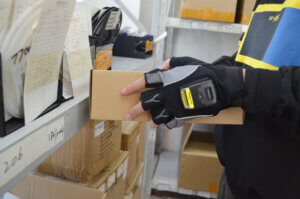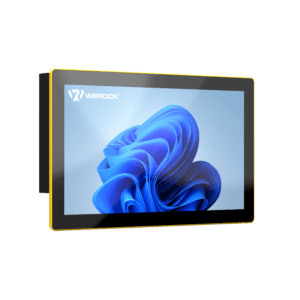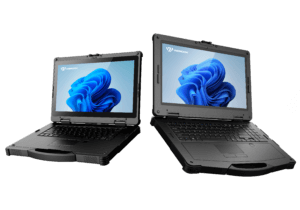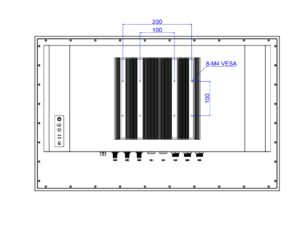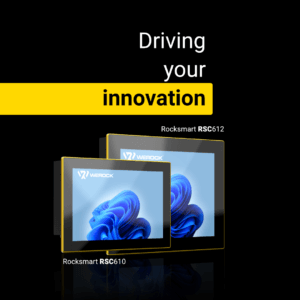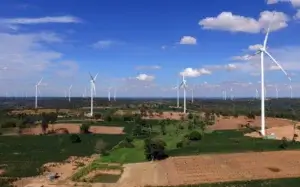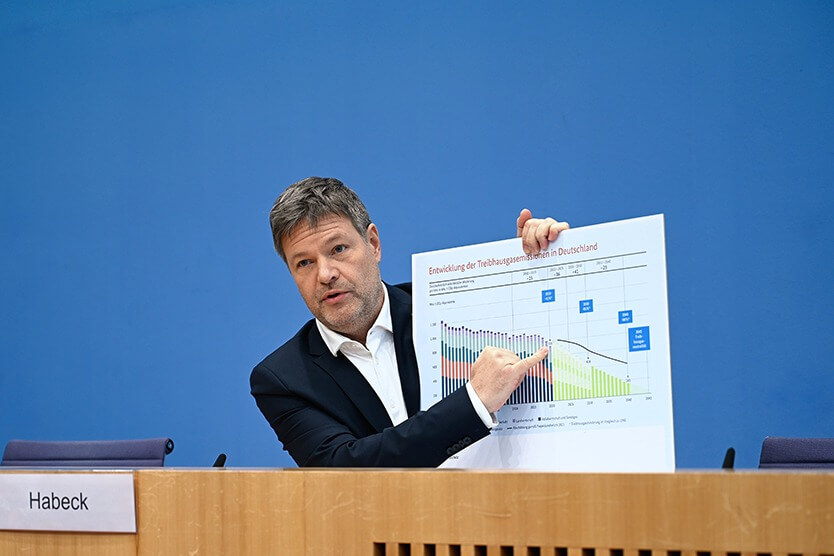The world is becoming virtual through the home office and there is a race for components and resources. Rarely has the computer industry experienced such growth as it has since the early 2020’s. But we need to ask ourselves a question: What are the implications here for our planet, our children. Are we building a better roof over their heads? Are we leaving them a more sustainable world? And what role can IT play in this from a business perspective? What impact does my technology have on the planet? How can sustainability be seen as a business advantage?
Businesses are facing increasing pressure to limit their environmental footprint. Smart IT decisions are not only good for the planet, but can also provide clear business benefits. To support these decisions, WEROCK products are already fully carbon neutral through offsets. Likewise, component selection is also made with optimal power consumption in mind. This ensures efficiency when working through longer battery runtimes, but precisely also a better overall footprint.
The EU plans to be the first climate-neutral continent by 2050 and to make the entire economy sustainable. In his opening statement, Economics and Climate Protection Minister Robert Habeck made it clear how far we are from achieving this: “We are starting with a drastic backlog. The climate protection measures to date are inadequate in all sectors. It is foreseeable that the climate targets for 2022 and 2023 will be missed. But we are making every effort to make up the shortfall. To do so, we need to triple the pace of our emissions reductions and do significantly more in less time.”
In a survey, 14% of all IT executives surveyed said COVID-19 has forced them to either postpone or cancel their emissions reduction plans, 27% said they have added or accelerated new sustainability initiatives. 60% of companies prioritize energy use of IT resources in their company’s sustainability policy. More than half also choose suppliers that share their sustainability goals (54%) and are committed to reducing plastic consumption (54%). Nearly all companies surveyed evaluate suppliers based on sustainability credentials, with 39% wanting specific evidence of their sustainability performance.
WEROCK wants to help companies meet their sustainability goals. After all, sustainability and environmental protection are one of the core pillars of WEROCK’s corporate philosophy. We want to get better all the time. With our reports on a quarterly basis, we want to provide insights into our environmental protection efforts and offer maximum transparency to all stakeholders.
However, our efforts are not intended to be “greenwashing”, because we want to make a real impact on the climate and continuously make our products more environmentally friendly. . That’s why we fully offset all emissions from our private label products. At regular intervals, we review with our suppliers to what extent we can make packaging, logistics, but also the product itself more environmentally friendly.
Emissions
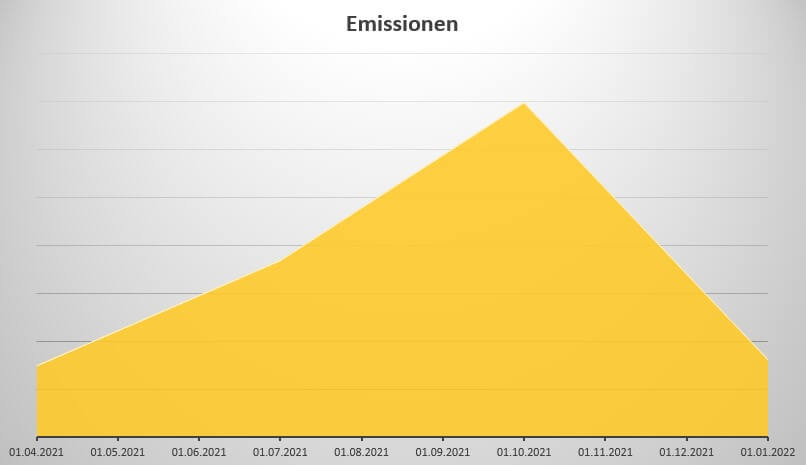
Compared to the third quarter, our emissions have decreased significantly due to numerous projects postponed to 2022 and supply bottlenecks. The headcount has also decreased significantly for the first time.
As before, emissions have not yet been calculated exactly, as we lack the resources to do so. As a basis for calculating greenhouse gas emissions, we take the gross weight of a product, including accessories, packaging, shipping carton and any filling materials, and calculate this using our formula for the manufacture of computers. Since the production of a computer is much more resource-intensive than that of a cardboard box, this results in a significant overcompensation – which we prefer in the end to having an exact emissions calculation.
Compensation
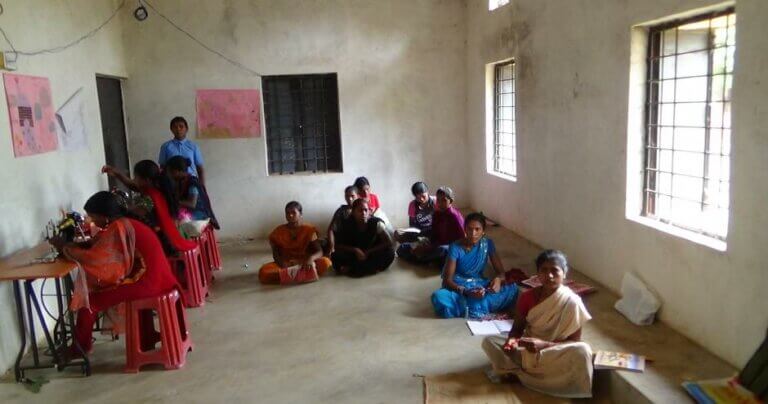
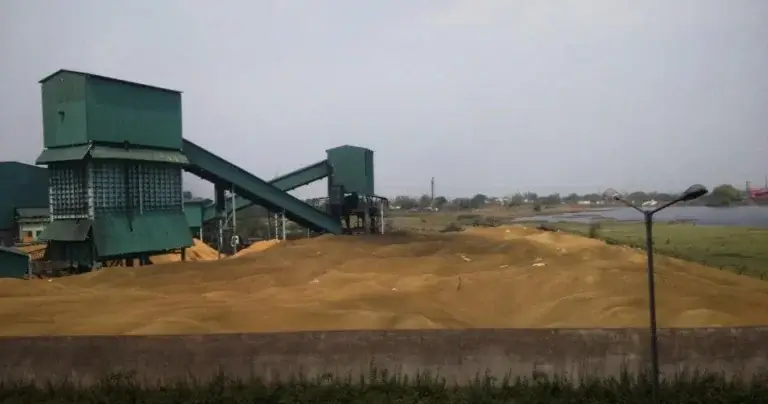
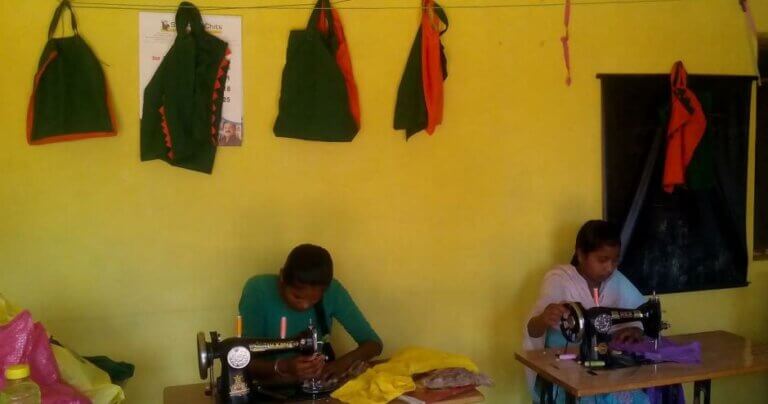
Offsetting for quarter 4 2021 is done according to Gold Standard. With this offset payment, we not only support climate protection, but also the local community in the areas of healthcare, education, clean drinking water and economic development. Climate protection must not be pure actionism. Particularly in the case of offset projects, it is important that the associated infrastructure is also sustainably strengthened so that the climate protection projects can also be maintained in the long term by the local population.
For this reason, we only invest in projects that fulfill at least five of the 17 Sustainable Development Goals of the United Nations.
We are supporting the construction of a 20-megawatt biomass power plant that generates electricity from rice husks from local communities. By using a renewable fuel, this project reduces local waste while reducing emissions by replacing fossil fuel power generation. Our local partner is Godawari Power and Ispat Limited, an industrial company focused on sustainability.
This project will save tons of CO2 annually. The money generated through the sale of carbon credits is used to fund a variety of projects.
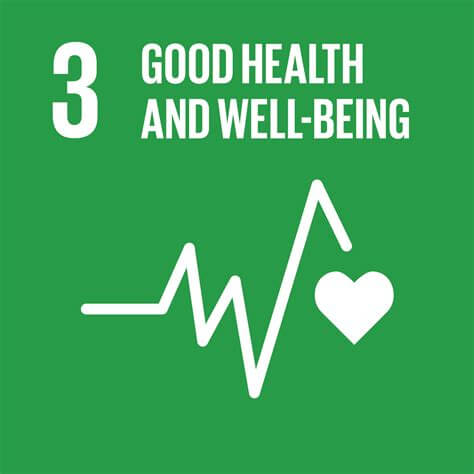
Goal 3 Health and well-being
Ensure a healthy life for all people of all ages and promote their well-being.
A community first aid health center for villages on the outskirts of the Kachhe Aari-Dongri mines.
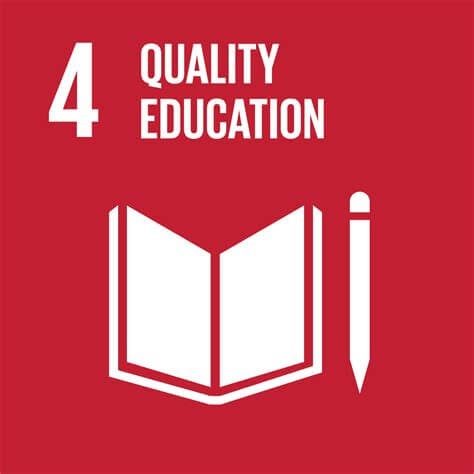
Goal 4 Quality Education
Ensure inclusive, equitable and quality education and promote lifelong learning opportunities for all.
12 community teachers and 3 anganwadi helpers in various schools in the area, contributing to better educational opportunities locally, as well as a computer training center for tribal students of the peripheral village of Kachhe Parekodo Tekadhora. This center has become a point of attraction for village children eager to learn and use computer applications. Educational trips for students of Kachhe and Parrekodo government schools and scholarships for higher education for students of Dorba village are also realized.
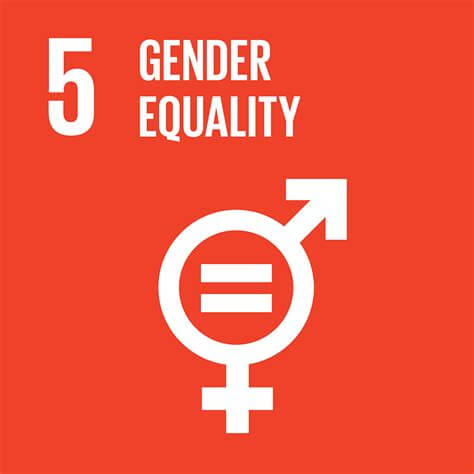
Goal 5 Gender equality
Achieve gender equity and self-determination for all women and girls.
Installation of a hand pump in Mutidham, Tada village. This pump is for public use and helps reduce the pressure on women to walk long distances for clean water.
The project also takes gender equality seriously and has implemented an Anti-Sexual Harassment Policy that complies with the requirements of the Sexual Harassment of Women at the Workplace (Prevention, Prohibition and Redressal) Act, 2013. An Internal Complaints Committee (ICC) has been established to address complaints of sexual harassment. All employees (permanent, contract, temporary, trainees) are covered under this policy. However, no complaints were received in 2016-17.
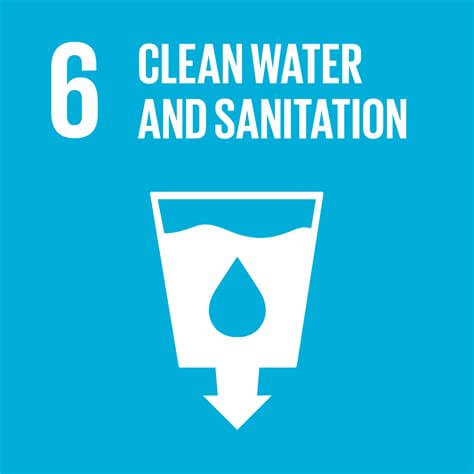
Goal 6 Clean Water and Sanitation
Ensure availability and sustainable management of water and sanitation for all.
Installation of a hand pump in Mutidham, Tada village. This pump is for public use and helps reduce the pressure on women to walk long distances for clean water.
Deepen pond in Tada village to improve capacity and access to water.
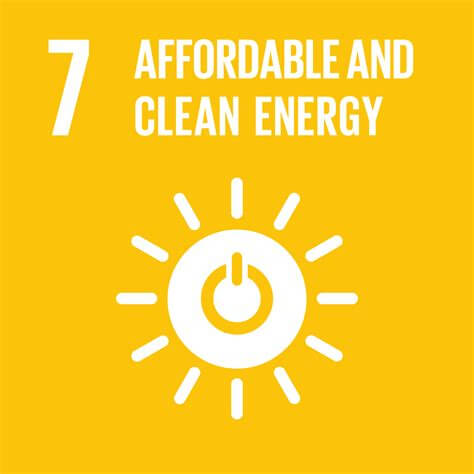
Goal 7 Sustainable and affordable clean energy
Promote durable, broad-based, and sustainable economic growth, full and productive employment, and decent work for all.
This project creates permanent local jobs.
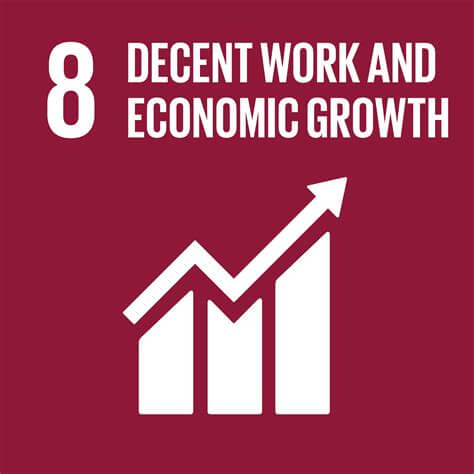
Goal 8 Decent work and economic growth
Promote durable, inclusive and sustainable economic growth, full and productive employment and decent work for all.
A sewing and tailoring center for women to promote self-employment.

Goal 13 Take action on climate change
Take immediate action to combat climate change and its impacts
The project aims to generate electricity from renewable biomass residues, i.e. rice husks, to reduce greenhouse gas (CO2) emissions. Since biomass is a CO2 neutral fuel, the electricity generated by GPIL from renewable biomass will have no greenhouse gas emissions. It also replaces fossil fuel-based electricity generation from the NEWNE grid (which is now part of the Indian Unified Grid), resulting in reduced emissions from these fossil fuels. The project activity will burn biomass in the boiler to produce high pressure steam to generate 20 MW of electricity. The primary technology for the project activity is direct combustion of rice husks and electricity generation using Rankine cycle technology. In this method, the rice husks are burned directly in the boiler, producing steam that is fed to a steam turbine that drives the generator.
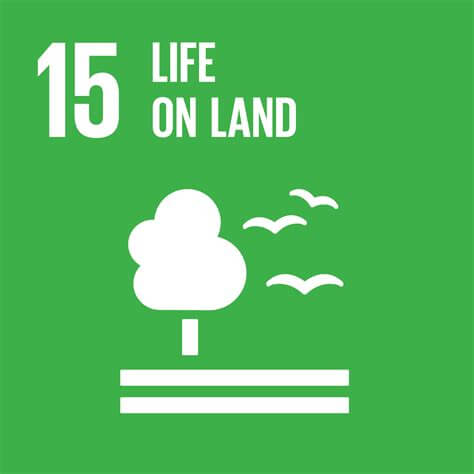
Goal 15 Life on land
Protect, restore and promote sustainable use of terrestrial ecosystems, sustainably manage forests, combat desertification, end and reverse land degradation, and end biodiversity loss.
We offset our rugged tablets, notebooks and handhelds immediately upon receipt of goods, not at the time of sale. Once we have the final shipping weights, the emissions created from these devices are offset with the next billing cycle. We try to find a balance between short delivery times and only producing as much as is needed. For shipping to our customers we usually choose DHL GoGreen shipping, which is also fully CO2 compensated.
Progress
The fourth quarter offset payment now meets eight of the UN Sustainable Development Goals targets for the first time. We also conducted our first annual supplier audit. Two suppliers failed, with one stating that the issue was not relevant to them. The second supplier was unable to demonstrate any efforts beyond the minimum legal requirements. On average, in the measures used in 2021, suppliers met them 74% of the time, a solid base overall.
Likewise, our Scoria A104 model is being discontinued, partly because of lower demand than we expected – but also precisely because the battery is not easily replaceable without tools (but is possible). The Scoria A105 is not affected due to the positive sales figures. As soon as there is a successor model with a new casing, it will also be delivered with a replaceable battery.
Setbacks
Our supplier audit also has a direct impact on our products and portfolio. We have completely terminated our cooperation with one supplier with immediate effect, but we still have spare parts available for existing customers. It is no longer possible to purchase new equipment.
In the case of a second supplier, we are influencing the supplier to step up its own efforts. At the same time, we are maintaining the business relationship for as long as necessary to serve our customers. For future production orders with this supplier, we will double our climate compensation for the remaining business period. At the end of the planned sales cycle/support cycle, we will then terminate the collaboration unless they can demonstrate new measures. New products/projects will then no longer be realized with this supplier.
The situation of component shortages around electronic components and international logistics prices remains unchanged. We strive to keep delivery times for our customers as short as possible and currently – unfortunately – continue to rely on air freight.
Outlook
For the first quarter of 2022, we expect a significant increase in emissions due to rising sales and headcount.
